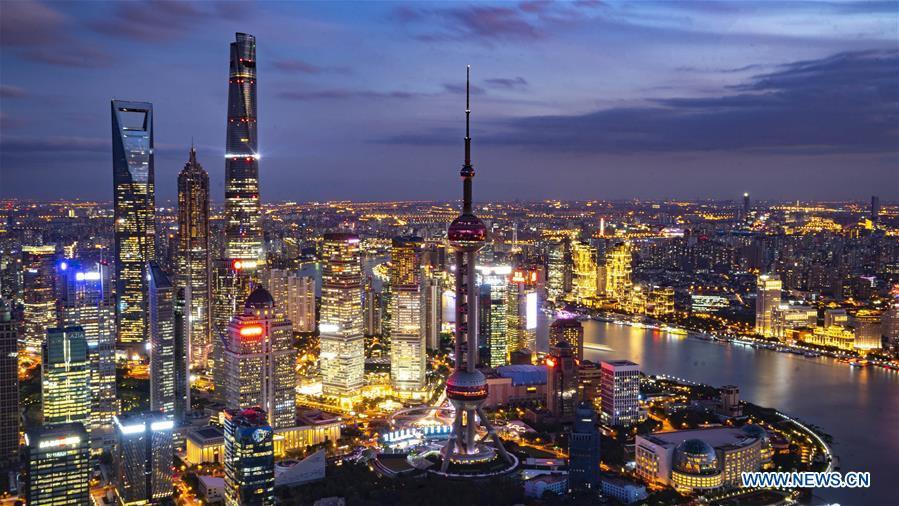Editor's note: "This is China" is an original animated series CGTN Digital presents for the upcoming Two Sessions. It focuses on the contemporary trends in China, recounting how the country's economy and society, guided by government policies, have evolved in the new era. The focus of this episode: the nighttime economy.
Nighttime economy, reflection of vitality in China
From the buzzing food scenes to diverse evening exhibitions and enriching cultural experiences, cities across China are packed with vibrant energies thanks to the non-stop nightlife continuing to boost the nighttime economy across the country.
The nighttime economy refers to the consumption economy in cities that comes to life between 6 p.m. and 6 a.m. the following morning.
China's nighttime economy has evolved from night markets to consumption of food, sightseeing, shopping, sports, exhibitions and performances, providing more possibilities for people to enjoy their night hours outside.
China's GDP grew by 6.3 percent in the first half of 2019, and consumption accounted for 60 percent, which continues to be the first driving force for the country's economic growth. Among them, nighttime consumption shows giant potential, according to the National Bureau of Statistics.

A night view of Shanghai, eastern China. /Xinhua
Positive measures contribute to the development of nighttime economy.
Many Chinese cities, especially metropolises such as Beijing, Tianjin and Shanghai, have rolled out plans to support nighttime consumption to drive economic growth.
According to Shanghai's plan, the city will draw up the development plan of the Nightlife Agglomeration Area and add more parking spaces, taxi waiting areas and late-night bus services.
Beijing extended the running hours of its subway Line 1 and Line 2 on Friday and Saturday, requiring the last train to depart after 12 o'clock at night since July 19 last year.
Shijiazhuang, capital of north China's Hebei Province, has lowered the electricity cost of stores extending running hours at night by 0.2 yuan per kilowatt-hour, reducing the financial burden of local shopping malls.

Chinese youth serve as another impetus in China's nighttime consumption market.
According to a recent survey by China Youth Daily, nearly 60 percent of the respondents said they make nighttime purchases at least twice a week and around 9.1 percent nearly every night, according to the survey of 1,977 people aged 18-35.
According to the post-95s late sleeper report from Alibaba in September 2019, individuals from the post-95s generation are very active in the fields of cultural consumption involving activities such as watching movies at night, watching plays, listening to music, reading books and enjoying performances.

In 2020, hit by the COVID-19 pandemic across the country, China's nighttime economy is faced with challenges yet new inspirations.
Decentralized consumption and on-and-offline interactions have become the up and coming consumption model leading the pace of the country's nighttime economy.
In the future, more and more nighttime activities will serve to light up the bustling night markets all across China.
Editor: Duan Fengyuan
Copy editor: John Goodrich
Chief editor: Chen Ran
Senior consultant: Dr. Xia Jixuan
Producer: Si Nan
Supervisor: Zhang Shilei
